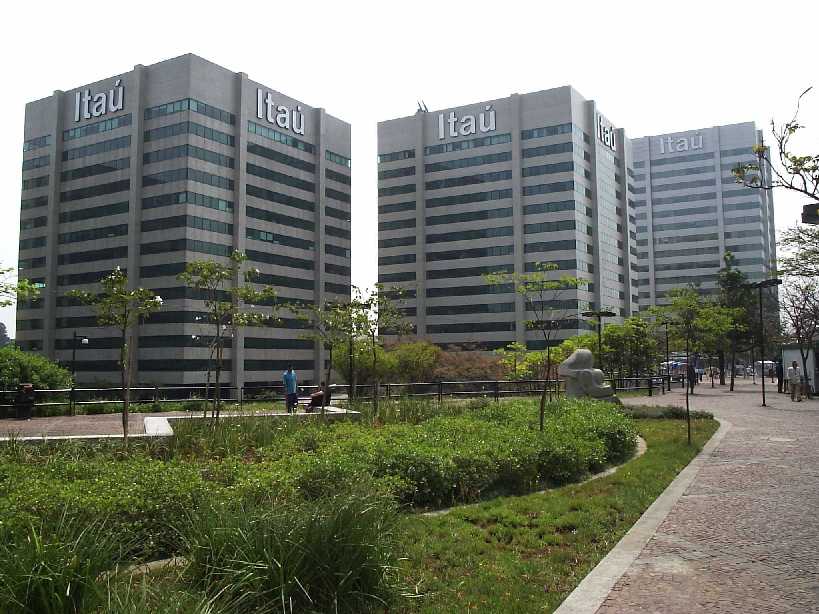RIO DE JANEIRO, BRAZIL – Corporations worldwide are using carbon offsets as a tool to implement their climate action strategies. The voluntary offset market has blossomed because they seek carbon credits to neutralize greenhouse gas emissions, but its inefficiencies have also become apparent.
The process of buying credits is often complicated, with no guarantee that there will be no double-counting and opaque pricing that leaves both buyers and sellers guessing.
Every problem is an opportunity – and many companies and initiatives are emerging around the world to try to solve some of these problems and grow the offset market by ensuring the integrity of traded assets.
But for the first time, a group of banks has decided to get into the game with something called the Project Carbon, a global marketplace for quality carbon offsets that aims to bring buyers and sellers together to bring more transparency to the offsets market and ensure the traceability of contracts through blockchain.
The initiative is led by São Pãulo-based Itaú Unibanco, the largest banking institution in Brazil, as well as the largest in Latin America and the Southern Hemisphere, and three other foreign banks: Canada’s CIBC, National Australian Bank (NAB), Australia’s largest commercial bank, and the U.K.’s NatWest (formerly Royal Bank of Scotland).
The platform, built by countless hands with multidisciplinary teams from all participating financial institutions, is in the final stages of development and is scheduled to debut as a pilot next month.
But some groundwork has already been laid.
At the heart of the project is the use of a blockchain platform developed by U.S.-based Consensys. It makes loans traceable and prevents double counting – when the same loan can be sold to multiple buyers.
The concept is not new.
Other platforms, such as Fintech Moss, use blockchain technologies to ensure the integrity of contracts.
In Project Carbon, although banks enable the platform, they will not act as intermediaries in the buying and selling processes.
The idea is that the credit owners – be they the generators themselves, developers, and other types of brokers – will clearly present their holdings to the market. The sizes and values of the transactions carried out will be disclosed to facilitate price discovery.
Exchanges and other providers will be able to plug into the platform to offer additional services.
“What we want to avoid is the market taking a less appropriate path. We’ve already seen moves in Brazil and around the world where players buy cheap to stock up and then sell more expensively,” Nicola says to Reset magazine.
ON THE ROAD TO NET-ZERO
Promoting liquidity and transparency in the voluntary carbon credit market is a critical building block for banks to chart their own path toward net-zero, the executive says.
For financial institutions, emissions from their own operations, including offices, data centers, and branches, are relatively small. What really counts is what’s known as Scope 3, or emissions financed through the loan portfolio.
To “clean up” the portfolio, in addition to reducing exposure to carbon-intensive sectors, it is necessary to help customers make the transition. More than making the platform a revenue stream per se, the bank is concerned with adding value to its offering in the process, Nicola says.
In addition to meeting the demand for offsets, a robust trading platform in the voluntary carbon market is also a way to stimulate supply and create business opportunities for companies with alternatives to capture or avoid emissions.
“We very often get inquiries from customers who want to either buy or sell carbon credits,” the superintendent says. “And with the number of net-zero pledges that are expected to come by COP 26, I do not doubt that there won’t be a lack of supply or demand for these services.”
Itaú does not yet have an official goal to neutralize emissions from its financed portfolio but intends to join “soon” the Net Zero Banking Alliance, a UN initiative through which banks pledge to achieve net-zero emissions by 2050, and which for now includes only Bradesco among the major national capital banks.
“But we are already a signatory to the UN Principles of Banking Responsibility since September 2019, which implies compliance with the Paris Agreement,” says the CEO.
From local to global
Itaú already has some experience in the offset market.
For years, the bank has offset most of its own emissions through Commitment to Climate, a platform founded by Itaú and Natura that bundles offset projects that also have a social impact, in a process that is considered state of the art in Brazil.
Today, in addition to the founders, several other companies use the platform.
“Climate offsets are very relevant in the Brazilian market, but the experience has also helped us identify some bottlenecks. The biggest one is that there is no traceability, which is crucial when we talk about scaling for the global market,” he says.
At Carbon Project, partnering with foreign banks from countries with a regulated issuance market should add to the platform’s robustness. “These countries have already established a set of good practices, which helps us a lot,” he says.


